Earth
Sign up for our newsletter
We summarize the week's scientific breakthroughs every Thursday.
-
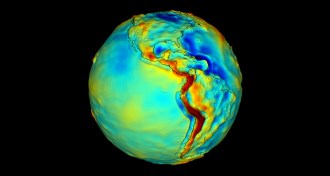 Oceans
OceansOn East Coast, sea levels lean southward
On North America’s East Coast, sea levels tilt slightly downward to the north, new research finds.
-
 Health & Medicine
Health & MedicineStoplights are hot spots for airborne pollution
Drivers get a big chunk of their exposure to pollutants from short stops at traffic intersections.
-
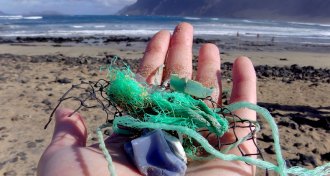 Oceans
OceansMillions of tons of plastic end up in oceans each year
A new estimate quantifies how much plastic makes its way into the world’s oceans.
By Beth Mole -
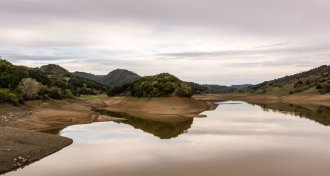 Climate
ClimateWorst drought in a millennium predicted for central and southwest U.S.
Comparing reconstructions of past drought conditions with models of future dryness shows that the Central Plains and Southwest U.S. will become the driest in a millennium.
-
 Earth
EarthMineral hunting, mob math and more reader feedback
Readers ask about Earth's most abundant mineral and discuss the notoriously unpredictable behavior of pedestrians.
-
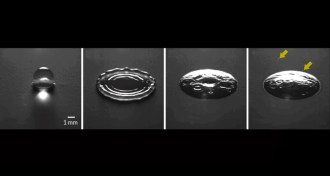 Physics
PhysicsRaindrops kick up soil chemicals
The champagne-like fizz produced when a raindrop hits the ground may be responsible for the earthy aroma after a rainstorm.
By Andrew Grant -
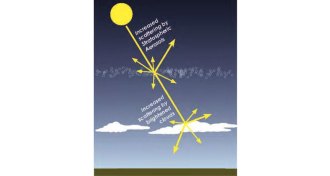 Climate
ClimateArtificial fixes for climate change nixed — for now
Experts says schemes to manually adjust the world’s climate are not ready for use, but should be studied just in case.
By Beth Mole -
 Health & Medicine
Health & MedicineFallout from nuclear bomb testing presaged today’s radioactive tracers
Scientists in 1965 measured buildup of radioactive carbon from nuclear bomb testing in people.
-
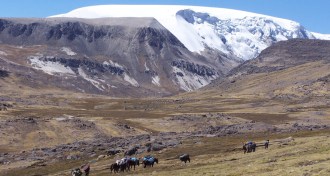 Environment
EnvironmentHumans’ environmental rap sheet gets longer
Ice cores reveal human-caused air pollution 240 years before the Industrial Revolution.
By Beth Mole -
 Environment
EnvironmentFunding canceled for clean coal plant
The Department of Energy has scrapped funding for FutureGen, a project to use new technology to sequester carbon dioxide emissions from a coal power plant.
By Beth Mole -
 Environment
EnvironmentFunding canceled for clean coal plant
The Department of Energy has scrapped funding for FutureGen, a project to use new technology to sequester carbon dioxide emissions from a coal power plant.
By Beth Mole -
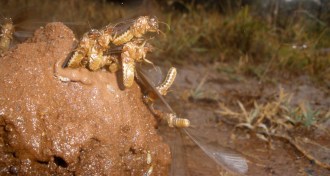 Ecosystems
EcosystemsTermite mound paradises help buffer dry land against climate change
Landscapes dotted by Africa’s great termite mounds look on the verge of turning into desert but are, in fact, more resilient.
By Susan Milius